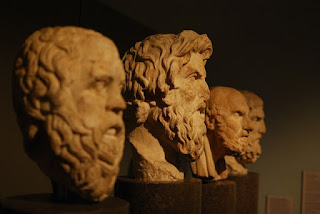Virtues as splendid vices Continued

We are still on the Fallen image of God next page 148; Reformed Ethics; Herman Bavinck. I feel it is important to look at his opening statements because Bavinck is the type of theologian not to leave any stone unturned. He says “Furthermore, Reformed theologians believed that the moral virtues of the pagans came from the general operation of the Holy Spirit and did not arise from any innate ability of the human will . That is why some preferred to use the term "virtue” for pagan morality and reserve the term "good works” for Christian morality. The former is considered under philosophical ethics, and the latter under specifically Christian ethics. These two differ in their foundations, their norms, and their goals. Human dominion over nature has been weakened and robbed of its spiritual character, but not eliminated; it has been impeded, but not destroyed. Science and scholarship hear witness to the human yearning for knowledge of earthly things. ...

